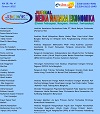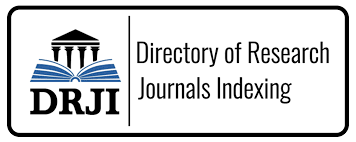Analisis Kepuasan Mahasiswa FKIP Atas Kualitas Layanan Akademik Di Pusat Pelayanan Terpadu Universitas PGRI Palembang
DOI:
https://doi.org/10.31851/jmwe.v18i4.7441Abstract
ABSTRAK
Â
Penelitian ini bertujuan untuk (1) mengetahui apakah Kepuasan Mahasiswa FKIP atas Kualitas Layanan Akademik di Pusat Pelayanan Mahasiswa Universitas PGRI Palembang telah terpenuhi dan sesuai harapan mahasiswa, (2) untuk mengetahui instrument kualitas layanan (tangibles, reliability, responsiveness, assurance, dan empathy) mana yang memberikan kepuasan kepada mahasiswa FKIP Universitas PGRI Palembang tahun 2019-2020. Metode yang digunakan dalam penelitian ini adalah metode deskriptif untuk menggambarkan hubungan antar variabel melalui pengujian hipotesis. Penelitian ini menggunakan kuesioner sebagai alat pengumpulan data yang didistribusikan kepada 98 responden dari mahasiswa FKIP yang terpilih sebagai responden pada tahun akademik 2019-2020, dimana ada 7 item pertanyaanuntuk variable kualitas layanan dan 8 item pertanyaan untuk variable kepuasan mahasiswa. Berdasarkan hasil penelitian yang dilakukan, terdapat pengaruh yang signifikan secara simultan antara variabel kualitas layanan akademik (X) terhadap variabel kepuasan mahasiswa (Y). Ini dibuktikan dengan memperoleh dengan perolehan perhitungan lebih besar dari t tabel (5.207> 1,660) dan koefisien 0,000 dan nilainya positif.
Â
Kata kunci: Kepuasan Mahsiswa, Kulaitas Layanan Akdemik
Â
ABSTRACT
Â
This study aims to (1) find out whether FKIP Student Satisfaction on the Quality of Academic Services at the Student Service Center of PGRI Palembang University has been fulfilled and according to student expectations, (2) to determine service quality instruments (tangibles, reliability, responsiveness, assurance, and empathy) which one gives satisfaction to FKIP students at PGRI Palembang University in 2019-2020. The method used in this study is a descriptive method to describe the relationship between variables through hypothesis testing. This study used a questionnaire as a data collection tool which was distributed to 98 respondents from FKIP students who were selected as respondents in the 2019-2020 academic year, where there were 7 question items for the service quality variable and 8 question items for the student satisfaction variable. Based on the results of the research conducted, there is a simultaneous significant effect between the academic service quality variable (X) on the student satisfaction variable (Y). This is evidenced by obtaining a calculation greater than t table (5.207 > 1.660) and a coefficient of 0.000 and the value is positive.
Â
Keywords: Student Satisfaction, Academic Service Quality
References
Maheswari, Hesti. 2013. Analisis Perbandingan Kepuasan Mahasiswa terhadap Kualitas Proses Belajar Mengajar Dosen Tetap dengan Dosen Tidak Tetap pada Universitas Mercu Buana. Jurnal SWOT. Vol.6 No.1 Februari 2013.
Paly, Basir. 2014. Tingkat Kepuasan Mahasiswa terhadap Kinerja Proses Belajar Mengajar (PBM) Dosen. Jurnal Al Hikmah. Vol.XV Nomor 2/2014.
Rahayu, Dwi. 2013. Pengaruh Service Qualityterhadap Tingkat Kepuasan MahasiswaAkuntansi Fakultas Ekonomi Universitas Maritim Raja Ali Haji Tanjung Pinang. Jurnal UMRAH.
Sugiyono. 2017. Metode Penelitian Pendidikan Pendekatan Kuantitatif, Kualitatif dan R&D. Bandung: Alfabetha.
Tjiptono F dan Gregorius Chandra. 2014). Manajemen Kualitas Jasa. Yogyakarta: Penerbit Andi.
Tuerah, Febriany Feibe Rosaline, dkk. 2015. Analisis Kualitas Layanan Akademik Dan Administrasi terhadap Kepuasan Mahasiswa. Jurnal EMBA 422.Vol. 3 No.4 Desember 2015 ISSN 2303-1174.
UU No. 20 Tahun 2003 tentang Sistem Pendidikan Nasional
Downloads
Published
Issue
Section
License
The copyright of the received article shall be assigned to the publisher of the journal licensed under a Creative Commons Attribution-NonCommercial 4.0 International License in line with the license, authors and any users (readers and other researchers) are allowed to share and adapt the material only for non-commercial purposes. In addition, the material must be given appropriate credit, provided with a link to the license, and indicated if changes were made. If authors remix, transform or build upon the material, authors must distribute their contributions under the same license as the original.























